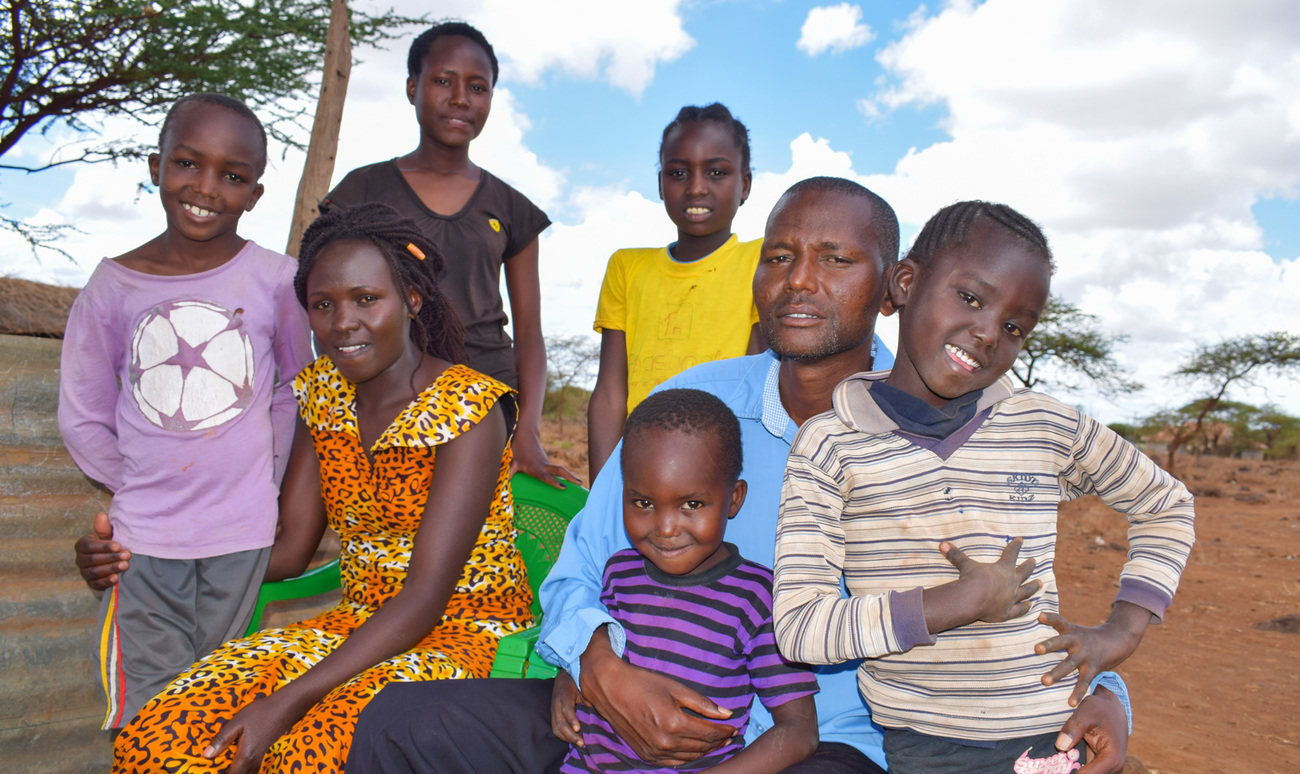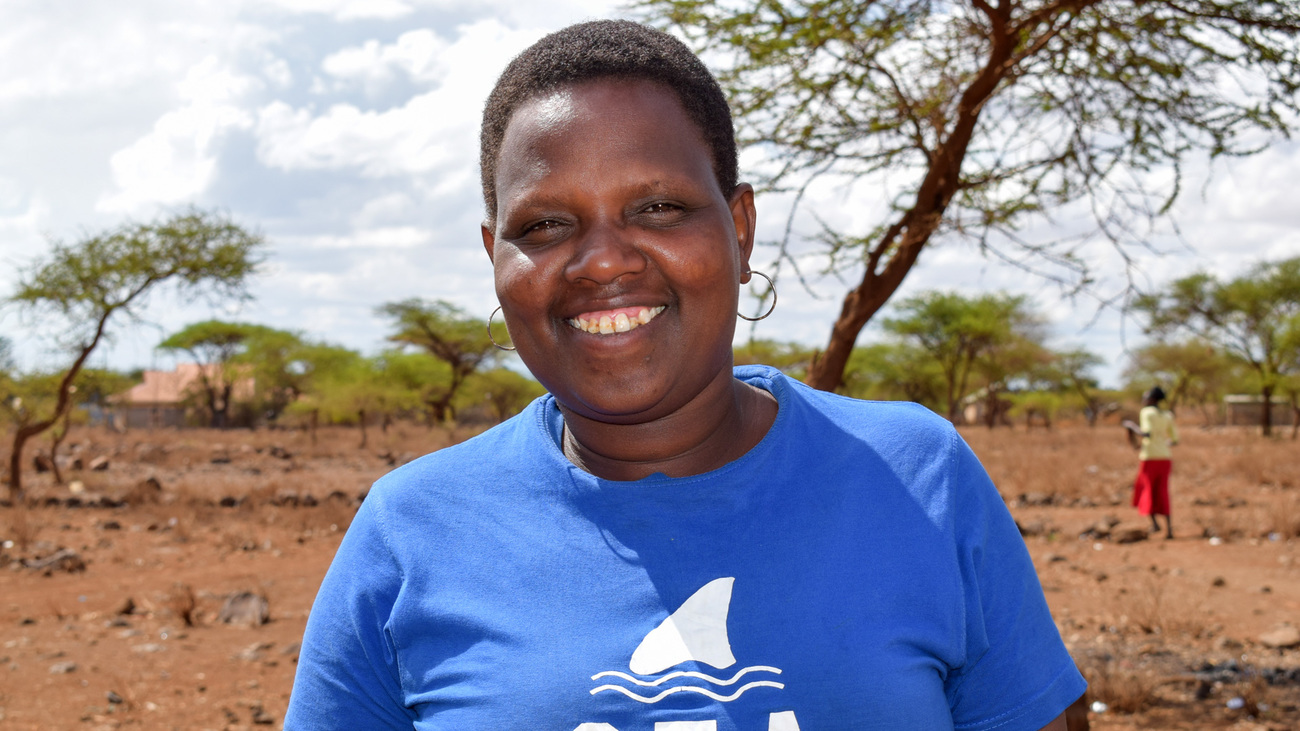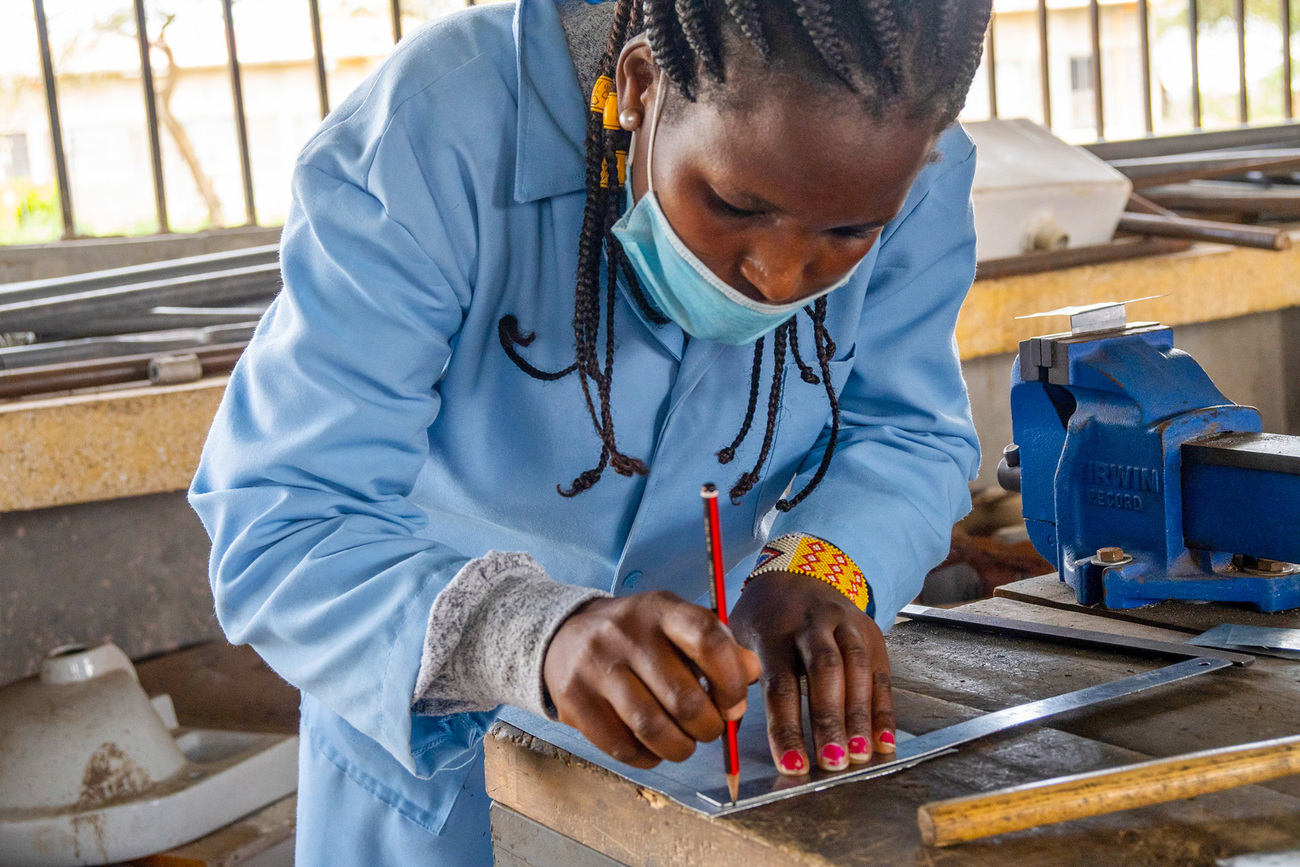Jenga Mama – Kenya
Empowering women to protect wildlife in Kenya“we shall rise up”: how Maasai women are transforming their families’ futures
“we shall rise up”: how Maasai women are transforming their families’ futures

Around southern Kenya’s Amboseli National Park, Maasai families are increasingly in conflict with wildlife over pastures, water, and space. Families rely on farming crops and livestock, but habitat loss and land degradation from climate change is forcing wildlife and people to compete for the same dwindling natural resources—sometimes with deadly consequences.
That’s why IFAW is supporting 60 women from these highly patriarchal communities to lead the way in changing their families’ futures.
Through the Jenga Mama (Swahili for “Empower a Woman”) project, which partners with the German foundation Margarete-Breuer Stiftung, these barrier-smashing women have followed a year-long vocational training of their choice. Courses included plumbing, hairdressing, garment making, food and beverage production, and information technology.
Now they’re busily preparing for their graduation, after which they will receive mentorship and support to set up their own businesses.
inspiring a better future for girls
One of the participants, Penina Lenkishon, chose to study dressmaking. When Penina was in grade eight, she got pregnant and her education stopped. Her father then enrolled her in a dressmaking course, but she left the course to get married and have more children.
Twelve years later, she has finished her training and looks forward to starting her business.
“It is good to go back to school,” she says. “I believe this course will help me and my children, my family, as I will use my skills to make money and take care of them.
“I really want to have a good business where I can employ others. I will help my family and community better their living conditions.”
Though her vocational course meant a lot of hard work and time away from her family, she knows she is an inspiring example to her five young daughters.
“The children were really excited to know that even I was going back to school. Especially as they are girls—I am really looking to motivate them to study more than me, go beyond the grade eight that I attained, and get a degree.”

breaking gender barriers
Maasai women are the pillars of their communities as they take care of their families and livestock, yet they are marginalized when it comes to education, socio-economic empowerment, and participation in decision-making. Like Penina, many drop out of school early to support their families, or for childcare, pregnancies, or early and forced marriages.
These realities stand in the way of further education, leaving many young women with very few opportunities to make their own incomes.
“It is not easy. Ladies are always lowered. Their dignity is always down,” admits Janet Sabore, who chose to learn plumbing—traditionally a male-dominated career—because her community currently has no plumbers.
About her future customers, she predicts: “They'll say, ‘This is a woman, she cannot do anything.’ But I'll have to convince them, and I'll tell them, ‘Whatever a man can do, a woman can do it better.’”

transforming fathers
Because the vocational training centers are hundreds of kilometers from the women’s homes, many have left their families for months at a time. In some cases, the experience meant men in their families also challenged their community’s expectations.
When Lucy Nailantei Manja left for a year to study hairdressing and beauty therapy, her husband Festus looked after their four young children, aged between four and eleven.
He says, "There are murmurs and a lot of negative comments about me having just one wife and then letting her leave to study far away from home. But I don't let them bother me, as staying with my kids—though it was not easy—has been very good, very fulfilling for me. It helped in bonding us together.
“I advise my fellow men to take the initiative and spend more time with their children and support their wives in pursuing careers outside the home."
becoming community leaders
By supporting these women to create an additional source of income, Jenga Mama is not only reducing the financial impact families face when wildlife destroys crops or livestock but also boosting the women’s confidence to participate in governance and decision-making. They will become a strong voice for finding solutions to the challenges they currently face—whether those challenges come from living alongside wildlife or changing restrictive gender roles.
Experience shows IFAW that communities are more likely to engage in wildlife protection programs if there is a benefit for the people of the community as well—even if the benefits are indirectly linked to wildlife.
When combined with the conservation work IFAW is already doing alongside the community, Jenga Mama will help create an environment where animals and people can thrive together.
“We shall rise up,” promises Ann Nailantei, a food-and-beverage trainee. “We believe we are going to be important people in the future of tomorrow.”
Related content
Our work can’t get done without you. Please give what you can to help animals thrive.